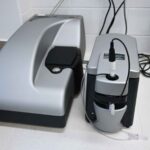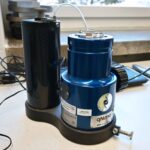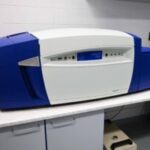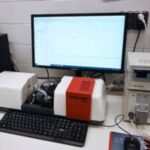Laboratory of preparation and characterization of nanoparticles
We are focused on the formulation of low-molecular drugs, natural compounds, and macromolecules into various nanoparticle-based delivery systems. Complex physical-chemical characterization of biomolecules and nanoparticles including exosomes also interests us.
We are experienced in the formulation of liposomes, nanoemulsion and microemulsion-based delivery systems, and other nanoparticles. We use various methods for the preparation of liposomes including hydration of the lipid film method with the following extrusion in volumes from 0,5 to 20mL. The laboratory is equipped with a microfluidic mixing device, and microfluidic homogenizer (volumes up to 6 mL) to formulate nanoparticle-based delivery system formulations.
We perform complex nanoparticle characterization of nanoparticles including dynamic light scattering, electron microscopy, and others. Flow field fractionation and ultracentrifugation are available tofor separateion and characterizeation of nanoparticles. We determine the API content, encapsulation efficiency, and chemical stability in the formulations. Physical-chemical characteristics (the size, polydispersity, surface charge, nanoparticle concentration etc.) are determined to evaluate the stability of and quality control of nanoparticles and quality control of nanoparticles (liposomes, exosomes, nanoemulsions, microemulsions, polymeric nanoparticles, inorganic particles).
We perform UV/VIS absorbance and fluorescence properties of biomolecules (excitation/emission spectra, quantum yield, fluorescence life-time) for qualitative and quantitative analysis.
Microcalorimetric analysis is used to measure biomolecules‘ tThermal stability, of biomolecules using microcalorimetric analysis is used for stability studies, quality determination, and composition optimization in the biopharmaceutical research and development. The iIsothermal titration calorimetry method is available to study biomolecular interactions, binding affinity and other thermodynamic parameters.







